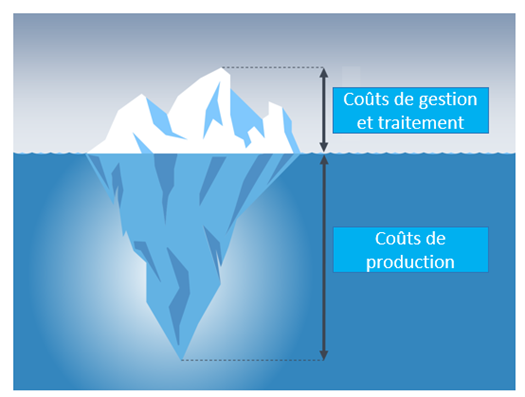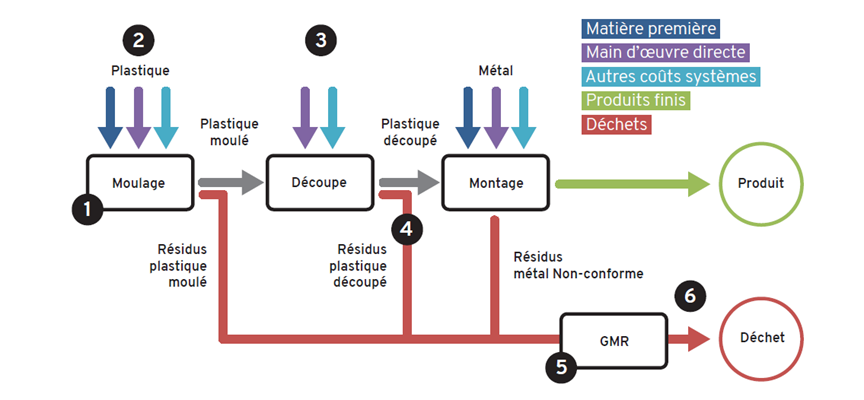Researcher Julien Beaulieu and Marc Journeault, professor at Université Laval, have developed a tool so that small and medium-sized businesses can in a simple way see the benefits of reducing waste and losses. Read a summary of their research in circular economy.
Summary
The purpose of a material flow cost analysis (MFCA) is to calculate the overall cost of a company’s material losses. When company managers evaluate the economic losses related to waste, they often limit themselves to the cost of collection by a service provider. However, the costs associated with waste collection and management represent on average only 10% of the total costs associated with waste, the majority of which are attributable to waste generation (Adème, 2014). The MFCA sheds light on all of these costs and establishes the true economic issues associated with waste.

While conducting an MFCA is relevant, it requires detailed modeling of material flows in a company. The use of this tool requires energy-intensive data collection and a thorough knowledge of production costs. This analysis therefore requires time, resources and expertise that is not available in all organizations, especially for SMEs. Its complexity is therefore a major obstacle to its use in practice. Moreover, the potential benefits and spin-offs of MFCA for SMEs remain to be demonstrated.
This project developed a simplified MFCA methodology that facilitates its use in SMEs. Four variations of MFCA have been proposed in the guide (preliminary, focused, simplified and detailed MFCA) to meet different organizational needs and objectives. The guide provides a simple, clear, and illustrated approach to conducting each of these MFCAs within organizations.

The research project also highlighted the benefits and impacts of using simplified MFCA in SMEs. Based on interviews with circular economy experts who have applied the method proposed in the guide to different companies, the results of this research show that the MFCA is a relevant and powerful tool for (i) highlighting the economic issues associated with the waste generated by the organization, (ii) motivate managers to take action to reduce the amount of waste generated by considering improvement measures such as replacing inputs, modifying processes, internal recycling or selling by-products, and (iii) contribute to the identification of opportunities to increase economic performance while reducing the environmental footprint of organizations.
